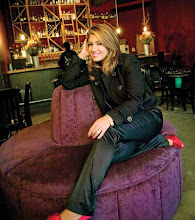
"When you are in a controlled and sheltered environment, you become ill-equipped to decision making." These are the words of a wise 55 year-old man who was an inmate at the San Quentin State Prison in California. Joseph Jermoe Matthews was stuck in a revolving door, in and out of jail since a young age and then in and out of prison in his adulthood. His muddled illusions of life became a harsh reality when he came to realize that if he were convicted again, he would spend the rest of his life in a state penitentiary.
Matthews' cell measured four feet by eight feet, "small enough where I could touch the walls if I just stretched my arms out," he said. This was clearly an environment that made one anti-social. When asked if he would comment on the rehabilitation that the system offered he stated, "Their means was to punish; they did not focus on rehabilitation, and the more you punish someone, the more hostile you become. Everyone was just released a better criminal."
Prisoners have a lack of control over decisions, over activities, over all the aspects of their lives while incarcerated. They essentially have no privacy, they are observed served 24 hours per day, seven days per week. The rules and regulations that govern their activities are rigid. Matthews criticized their regulations against weight-training. "Then they took away our weights because officials worried that we were getting too strong, but what they didn't understand was that was our way of blowing out our frustrations."
In the early 1970s two American socialists, Greshman Sykes and Sheldon Messinger, prepared a code of ethics that was fabricated by inmates in a state prison. According to "Prison View" from Encarta Online, these rules read "(1) Do not rat or squeal on other inmates; (2) Do not interfere with the interests of other inmates; (3) Do not steal, exploit of cheat other inmates; (4) Do not be a sucker or make a fool of yourself by supporting policies; (5) Do not lose your cool; and (6) Be a ma, be tough and don't weaken. Inmate who violate these codes will be scorned or harmed by other inmates.
Matthew states, "You're always on guard, always paranoid and sleep with one eye open...Even your celly (cellmate) could go off on you if you look at him the wrong way." Supposedly these criminals are put in prison so they cannot harm society, but society in turn is harming them. For many of these men and women, prison has become a way of life. They only know how to survive in this unnatural environment, and upon their release, they are faced with the horror of fighting their way into society once again. What is prison? "A form of slave labor," according to Matthews.
For many, the journey through prison must be taken more than once, over and over again, until they learn on their own how to manage and survive a life without crime. Matthews mapped out a plan for his life upon his last release. In San Quentin, he found God and learned that worship was the only way out. He stayed at a Bible school for one year to clear his mind, body and soul of all crime, later living at a "sober living place" where he received the funding to attend truck driving school. With this job he was able to have transportation, get an apartment three months later and live his life as a Christian. He is now attending school to receive as a real estate agent.
For some this path may never be available. They will sit in their cells and wonder what is the easiest way to survive in society, and unfortunately they will only know what they think from experience is best---a life of crime. Matthews advises, "You must disconnect from your old lifestyle, leave your town, leave your "friends" and do what is right. For the first time I am seeing clearly, and it isn't so bad."

No comments:
Post a Comment